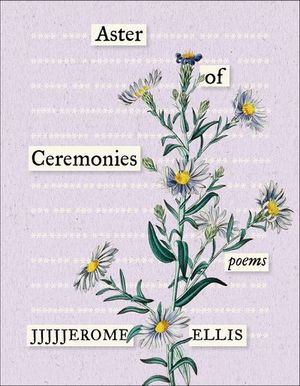Aster of Ceremonies
Published by Milkweed Editions
Aster of Ceremonies asks what rites we need now and how poetry, astir in the asters, can help them along. What is the relationship between fleeing and feeling? How can the voices of those who came before—and the stutters that leaven those voices—carry into our present moment, mingling with our own? When Ellis writes, “Bring me the stolen will / Bring me the stolen well,” his voice is a conduit, his “me” is many. Through the grateful invocations of ancestors—Hannah, Mariah, Kit, Jan, and others—and their songs, he rewrites history, creating a world that blooms backward, reimagining what it means for Black and disabled people to have taken, and to continue to take, their freedom.
By weaving a chorus of voices past and present, Ellis counters the attack of “all masters of all vessels” and replaces it with a family of flowers. He models how—as with his brilliant transduction of escaped slave advertisements—we might proclaim lost ownership over literature and history. “Bring me to the well,” he chants, implores, channels. “Bring me to me.” In this bringing, in this singing, he proclaims our collective belonging to shared worlds where we can gather and heal.
BUY NOW FROM
COMMUNITY REVIEWS

